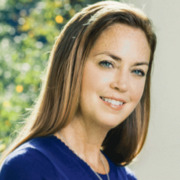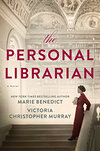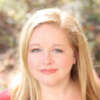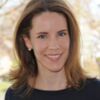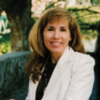Marie Benedict
Author of The Personal Librarian
About the Author
Marie Benedict is a well established lawyer at two of the country's premier law firms. She graduated magna cum laude from Boston College with a focus on Art History and History. She is also a cum laude graduate of Boston University School of Law. Marie had a passion for unearthing the hidden show more historical stories of women. She followed this passion and began her writing career. Her first historical novel was "The Other Einstein", which recounts the story of Albert Einstein's first wife, a physicist, and the role she may have played in his theories.The other novels in this series include Carnegie's Maid, and The Only Woman in the Room. She also writes historical novels as Heather Terrell. Those titles include: The Chrysalis, The Map Thief, and Brigid of Kildare. (Bowker Author Biography) show less
Disambiguation Notice:
Marie Benedict is a pseudonym of: Heather Terrell
Series
Works by Marie Benedict
The Secrets of Lovelace Academy 8 copies
Daughter of Egypt: A Novel 2 copies
The Mitford Affair 2 copies
Mitford Affair 1 copy
Associated Works
Tagged
Common Knowledge
- Legal name
- Terrell, Heather
- Other names
- Terrell, Heather
- Birthdate
- 1969
- Gender
- female
- Nationality
- USA
- Places of residence
- Pittsburg, Pennysylvania, USA
- Occupations
- lawyer
novelist - Disambiguation notice
- Marie Benedict is a pseudonym of: Heather Terrell
Members
Reviews
Ooof, this book is bad. Yet another author who can't seem to stop telling rather than showing. The prose of this book has the same cadence you would expect from a detail-oriented friend's recounting of a television episode. Mara - we are told - is a hard nosed career woman who has set aside everything extraneous in her life so she can get ahead. She doesn't have time for romantic relationships. Mere seconds after the author finishes telling us this, Mara falls for the one man she is legally show more obligated to remain professional with - an important client from an art dealership.
He's an old friend from college and against her better judgement (and all logic) Mara begins a torrid affair with him. Why does she fall in love with this guy? Geez, it's hard to say. The author doesn't seem to feel she needs to explain why a career woman would jeopardize not only her job but her ability to practice law. Afterall, Michael is really handsome... and persistent? Isn't that reason enough? Meanwhile, the case Mara is developing concerns a rare painting by a Dutch master that was supposedly looted by the Nazis during WWII. The descendant of the painting's owner wants it back, and naturally, Michael's auction house doesn't want to give it up.
The author fills pages and pages with Mara's painstaking research. And yes, it is just as thrilling as it sounds. The text is also interspersed with flashbacks to WWII and the time of the painting's creation. All of it feels very padded out, with numerous repetitions and useless details. Eventually the novel wraps up extremely anti-climatically. Through it all, Mara bumbles around, always one step behind everyone, including the reader. She also cries A LOT. Almost like punctuation. The whole book is dull and insipid. I even found myself hating the Holocaust survivor who was too much of a vehicle to add padding and emotional punch to the narrative. At one point she literally commands the protagonist to sit down and listen to a full recounting of her family history in painful detail. When the story is completed she unceremoniously casts Mara out of her apartment. Bizarre. show less
He's an old friend from college and against her better judgement (and all logic) Mara begins a torrid affair with him. Why does she fall in love with this guy? Geez, it's hard to say. The author doesn't seem to feel she needs to explain why a career woman would jeopardize not only her job but her ability to practice law. Afterall, Michael is really handsome... and persistent? Isn't that reason enough? Meanwhile, the case Mara is developing concerns a rare painting by a Dutch master that was supposedly looted by the Nazis during WWII. The descendant of the painting's owner wants it back, and naturally, Michael's auction house doesn't want to give it up.
The author fills pages and pages with Mara's painstaking research. And yes, it is just as thrilling as it sounds. The text is also interspersed with flashbacks to WWII and the time of the painting's creation. All of it feels very padded out, with numerous repetitions and useless details. Eventually the novel wraps up extremely anti-climatically. Through it all, Mara bumbles around, always one step behind everyone, including the reader. She also cries A LOT. Almost like punctuation. The whole book is dull and insipid. I even found myself hating the Holocaust survivor who was too much of a vehicle to add padding and emotional punch to the narrative. At one point she literally commands the protagonist to sit down and listen to a full recounting of her family history in painful detail. When the story is completed she unceremoniously casts Mara out of her apartment. Bizarre. show less
The Personal Librarian is a seamlessly related and meticulously crafted fictionalized account of the life of a woman who presented one identity to the world while hiding her true self because she "didn't want the color of her skin to be used as a weapon against her, an excuse to keep her relegated to the lowest jobs, the worst neighborhoods, with little possibility for a better life." It is a poignant, engrossing, timely and timeless story about the lengths to which one woman would go in show more order to rise above the constraints society placed on her and her family.
Belle's story is told via a first-person narrative, making it powerful and impactful. Authors Marie Benedict and Victoria Christopher Murray meticulously researched their subject but Belle was, of necessity and purposefully, intensely private. Based on the information available to them, Benedict and Murray have believably imagined and crafted conversations, as well as Belle's inner dialogue as she navigates the world. Belle was determined to succeed in a world designed to hold her back. Clever, calculating, witty, and beautiful, Belle was adept at using all of her assets to her advantage. She had to be. Because everything was at stake. And not just for her, but for her entire family because she supported them financially, enabling them to move to increasingly more comfortable apartments as Morgan generously increased her salary when she successfully procured the pieces he desired and elevated the library's stature.
Belle's father was not only the first Black graduate of Harvard University. He was also an activist, a contemporary of Frederick Douglass, Charles Sumner, and Booker T. Washington, known for his oration. But Belle's mother "saw the writing on the wall." When politicians began dismantling Reconstruction, her father lost his job as the first Black professor at the integrated University of South Carolina and the school was converted to a whites-only private men's college. She explains to Belle, "Your father and I lived through a brief, fleeting time in history when equality might have been possible." But the "lofty postwar ideal of integration" evaporated, the world comprised only of "black and white, two races separated, but certainly not equally." She recognized what Belle's father refused to: "Our only hope would be to live as white." And so they did.
But when Belle's mother reported to a 1905 census worker that the family was white, her father was infuriated to the breaking point and left. "Once she made the decision that they were going to live as white, she changed their names, she told them how they had to behave and, from the age of sixteen on, Belle was walking the footsteps her mother laid out for her," explains Murray. Indeed, throughout the book, Belle is "walking a tightrope" and struggling to reconcile her guilt with her ambition. She "felt that she was betraying her father but also helping black people." Belle secretly knew that her achievements were, in fact, the achievements of a a woman but, more particularly, a Black woman. Even if the world did not. Yet.
Belle was a woman compiling a vast and priceless collection of rare books, manuscripts, and art, an unparalleled accomplishment. She traveled abroad and skillfully negotiated to purchase artifacts she deemed necessary to elevate the library to unmatched esteem. But she did so in the employ of J. P. Morgan (1837-1913), a man of vast wealth and power who financed railroads and helped organize U.S. Steel, General Electric, and other major corporations. He was demanding and unforgiving, an anti-Semite who reminded Belle that she was his personal librarian, sometimes treating her like she was yet another of his possessions. Or worse, in Belle's mind, a slave. They disagreed and quarreled, but she strove to avoid angering or embarrassing him, aware that he would fire her instantly were her secret revealed, bringing ruin upon her entire family. Belle revered him and he was drawn to her -- based on their research, Benedict and Murray suggest a sexual tension between them. He came to consider her the most important person in his life, providing generously for her in his will.
Benedict and Murray effectively portray the evolution of their complex relationship, as well as Belle's interactions with Morgan's mistresses and children, especially his daughter Anne. Unmarried, Anne was rumored to be in a "Boston marriage," a euphemism for wealthy women who chose to eschew marriage to live independently and, perhaps, enjoy an intimate relationship. Their fractious encounters cause Belle concern, especially when Anne makes references to her "people," and questions her background, snidely telling Belle, "I though I heard something about your family having tropical roots." Belle shrewdly leverages the rumors about Anne to her advantage and relates the story that Belle's mother devised about Belle's grandmother hailing from Portugal to explain Belle's olive skin tone. It appeases Anne for a time, as it does others who inquires.
Belle never married, but she did have a decades-long relationship with Bernard Berenson, an expert on Renaissance-era art, which is explored in depth. It is both a heartbreaking and empowering aspect of Belle's life, as depicted by the authors. As a young woman, Belle was forced to accept that marriage and motherhood would not be in her future. She says, "I've always known that, because of my heritage, a traditional relationship would not be possible for me ... because a marriage means children, and that is something I cannot hazard. Without the fairer skin of my siblings, I could never risk bearing a child whose skin color might reveal my deception." But Belle wanted to experience love and romance, and in Benedict and Murray's telling of the story, although she had other lovers, she gets the opportunity to feel loved through Berenson, a man in an unconventional marriage with other secrets of his own. Like her relationship with Morgan, Belle's affair with Berenson changes her profoundly.
]How did Belle manage to pass for so many years, her secret never revealed? Murray believes that she would certainly never be able to pull it off today. But in the Gilded Age "to white people she looked white, but to black people, she looked black because of their features." As part of her deception, Belle was taught by her mother never to make eye contact with African Americans employed in service positions. There are times in the story, however, when Belle knows she has been seen by waiters and others, although they do not give her away. After one such encounter, Belle wonders, "Why does she serve while I am served? Why is it that the relative whiteness of my skin has given me this chance at privilege? It seems incomprehensible, but it is thus." Such details included in the narrative illustrate the complicated life Belle led -- always calculating, looking over her shoulder, and devising plausible explanations, constantly afraid that someone who knew the truth about her and her family would reveal it.
Of all of her accomplishments, the one that mattered most to Belle was making two men proud of her -- Morgan and her father -- for very different reasons. Her father's departure from the family impacted Belle deeply because of their close relationship and his tutelage about art and other subjects. Eventually, because of her notoriety, Belle dares not be seen with him in New York, so she is not able to personally show him her life's work. She knows his words are true: "Changing your name is easy. Changing your soul is impossible." She dreams of reinventing herself yet again and ponders coming forward with the truth in order to serve as an example to other Black people. But she never did.
The Personal Librarian is Belle's story, told in a compelling, engrossing, and richly moving manner that provides insight into and appreciation for Belle's triumphs, as well as sacrifices, as she strove to achieve her goals in the only way possible to her at the time. As he father tells her in a conversation imagined by Benedict and Murray, "One day, Belle, we will be able to reach back through the decades and claim you as one of our own. Your accomplishments will be part of history, they'll show doubtful white people what colored can do. Until that time, live your life proudly."
Benedict and Murray hope that readers, especially book club members, will reach out to each other and use the book to launch conversations about race in a way that feels safe.
Thanks to NetGalley for an Advance Reader's Copy of the book. show less
Belle's story is told via a first-person narrative, making it powerful and impactful. Authors Marie Benedict and Victoria Christopher Murray meticulously researched their subject but Belle was, of necessity and purposefully, intensely private. Based on the information available to them, Benedict and Murray have believably imagined and crafted conversations, as well as Belle's inner dialogue as she navigates the world. Belle was determined to succeed in a world designed to hold her back. Clever, calculating, witty, and beautiful, Belle was adept at using all of her assets to her advantage. She had to be. Because everything was at stake. And not just for her, but for her entire family because she supported them financially, enabling them to move to increasingly more comfortable apartments as Morgan generously increased her salary when she successfully procured the pieces he desired and elevated the library's stature.
Belle's father was not only the first Black graduate of Harvard University. He was also an activist, a contemporary of Frederick Douglass, Charles Sumner, and Booker T. Washington, known for his oration. But Belle's mother "saw the writing on the wall." When politicians began dismantling Reconstruction, her father lost his job as the first Black professor at the integrated University of South Carolina and the school was converted to a whites-only private men's college. She explains to Belle, "Your father and I lived through a brief, fleeting time in history when equality might have been possible." But the "lofty postwar ideal of integration" evaporated, the world comprised only of "black and white, two races separated, but certainly not equally." She recognized what Belle's father refused to: "Our only hope would be to live as white." And so they did.
But when Belle's mother reported to a 1905 census worker that the family was white, her father was infuriated to the breaking point and left. "Once she made the decision that they were going to live as white, she changed their names, she told them how they had to behave and, from the age of sixteen on, Belle was walking the footsteps her mother laid out for her," explains Murray. Indeed, throughout the book, Belle is "walking a tightrope" and struggling to reconcile her guilt with her ambition. She "felt that she was betraying her father but also helping black people." Belle secretly knew that her achievements were, in fact, the achievements of a a woman but, more particularly, a Black woman. Even if the world did not. Yet.
Belle was a woman compiling a vast and priceless collection of rare books, manuscripts, and art, an unparalleled accomplishment. She traveled abroad and skillfully negotiated to purchase artifacts she deemed necessary to elevate the library to unmatched esteem. But she did so in the employ of J. P. Morgan (1837-1913), a man of vast wealth and power who financed railroads and helped organize U.S. Steel, General Electric, and other major corporations. He was demanding and unforgiving, an anti-Semite who reminded Belle that she was his personal librarian, sometimes treating her like she was yet another of his possessions. Or worse, in Belle's mind, a slave. They disagreed and quarreled, but she strove to avoid angering or embarrassing him, aware that he would fire her instantly were her secret revealed, bringing ruin upon her entire family. Belle revered him and he was drawn to her -- based on their research, Benedict and Murray suggest a sexual tension between them. He came to consider her the most important person in his life, providing generously for her in his will.
Benedict and Murray effectively portray the evolution of their complex relationship, as well as Belle's interactions with Morgan's mistresses and children, especially his daughter Anne. Unmarried, Anne was rumored to be in a "Boston marriage," a euphemism for wealthy women who chose to eschew marriage to live independently and, perhaps, enjoy an intimate relationship. Their fractious encounters cause Belle concern, especially when Anne makes references to her "people," and questions her background, snidely telling Belle, "I though I heard something about your family having tropical roots." Belle shrewdly leverages the rumors about Anne to her advantage and relates the story that Belle's mother devised about Belle's grandmother hailing from Portugal to explain Belle's olive skin tone. It appeases Anne for a time, as it does others who inquires.
Belle never married, but she did have a decades-long relationship with Bernard Berenson, an expert on Renaissance-era art, which is explored in depth. It is both a heartbreaking and empowering aspect of Belle's life, as depicted by the authors. As a young woman, Belle was forced to accept that marriage and motherhood would not be in her future. She says, "I've always known that, because of my heritage, a traditional relationship would not be possible for me ... because a marriage means children, and that is something I cannot hazard. Without the fairer skin of my siblings, I could never risk bearing a child whose skin color might reveal my deception." But Belle wanted to experience love and romance, and in Benedict and Murray's telling of the story, although she had other lovers, she gets the opportunity to feel loved through Berenson, a man in an unconventional marriage with other secrets of his own. Like her relationship with Morgan, Belle's affair with Berenson changes her profoundly.
]How did Belle manage to pass for so many years, her secret never revealed? Murray believes that she would certainly never be able to pull it off today. But in the Gilded Age "to white people she looked white, but to black people, she looked black because of their features." As part of her deception, Belle was taught by her mother never to make eye contact with African Americans employed in service positions. There are times in the story, however, when Belle knows she has been seen by waiters and others, although they do not give her away. After one such encounter, Belle wonders, "Why does she serve while I am served? Why is it that the relative whiteness of my skin has given me this chance at privilege? It seems incomprehensible, but it is thus." Such details included in the narrative illustrate the complicated life Belle led -- always calculating, looking over her shoulder, and devising plausible explanations, constantly afraid that someone who knew the truth about her and her family would reveal it.
Of all of her accomplishments, the one that mattered most to Belle was making two men proud of her -- Morgan and her father -- for very different reasons. Her father's departure from the family impacted Belle deeply because of their close relationship and his tutelage about art and other subjects. Eventually, because of her notoriety, Belle dares not be seen with him in New York, so she is not able to personally show him her life's work. She knows his words are true: "Changing your name is easy. Changing your soul is impossible." She dreams of reinventing herself yet again and ponders coming forward with the truth in order to serve as an example to other Black people. But she never did.
The Personal Librarian is Belle's story, told in a compelling, engrossing, and richly moving manner that provides insight into and appreciation for Belle's triumphs, as well as sacrifices, as she strove to achieve her goals in the only way possible to her at the time. As he father tells her in a conversation imagined by Benedict and Murray, "One day, Belle, we will be able to reach back through the decades and claim you as one of our own. Your accomplishments will be part of history, they'll show doubtful white people what colored can do. Until that time, live your life proudly."
Benedict and Murray hope that readers, especially book club members, will reach out to each other and use the book to launch conversations about race in a way that feels safe.
Thanks to NetGalley for an Advance Reader's Copy of the book. show less
Before I read The Personal Librarian, I knew very little about "passing" -- a practice when black people with light skin "passed" as white. I never considered why black people would try to pass, or the fears they felt as they passed, or how passing can disrupt black families.
Thanks to The Personal Librarian, I learned so much about passing, and equally important, I learned so much about a dynamic, intelligent black woman named Belle da Costa Greene.
Belle lived during a time of tremendous show more racial disparity and injustice, becoming the personal librarian to J.P. Morgan. She was considered for this position because she was well educated about antiquities and art history--and because she looked white. You see: If Mr. Morgan knew Belle was black, she would have never been considered, despite her vast knowledge and cunning ways.
The Personal Librarian shares Belle's story collecting art and literary pieces for Mr. Morgan's library, but it also shares many other themes: her family dynamic, her fears about being discovered, and her love life. It's a rich tale. When I read the last page, I couldn't help but admire Belle for everything, including her flaws.
If you like historical fiction about powerful, Loud women, or wish to learn more about America's racial past, be sure to add The Personal Librarian to your to-read list. show less
Thanks to The Personal Librarian, I learned so much about passing, and equally important, I learned so much about a dynamic, intelligent black woman named Belle da Costa Greene.
Belle lived during a time of tremendous show more racial disparity and injustice, becoming the personal librarian to J.P. Morgan. She was considered for this position because she was well educated about antiquities and art history--and because she looked white. You see: If Mr. Morgan knew Belle was black, she would have never been considered, despite her vast knowledge and cunning ways.
The Personal Librarian shares Belle's story collecting art and literary pieces for Mr. Morgan's library, but it also shares many other themes: her family dynamic, her fears about being discovered, and her love life. It's a rich tale. When I read the last page, I couldn't help but admire Belle for everything, including her flaws.
If you like historical fiction about powerful, Loud women, or wish to learn more about America's racial past, be sure to add The Personal Librarian to your to-read list. show less
**This book was reviewed for the Manhattan and Seattle Book Reviews, and Netgalley**
The Other Einstein, by Marie Benedict, is a look at lost dreams, failing hopes, and 'what ifs’. What if Mileva, little known first wife of Albert Einstein, had never forsaken her path, and graduated with a physics degree as she had planned? What if she had collaborated equally with her husband?
This extraordinary woman had the misfortune to be born into a world reluctant to allow women university education, show more especially in the 'hard’ sciences of mathematics, physics, and chemistry. Mileva had to fight for the chance, with everything working against her. She was a female of Eastern European descent who walked with a pronounced limp, and was subject to open and veiled scorn alike.
Mileva met Albert at university in Zurich. He was the first in her small class to be welcoming, and soon enough managed to sneak under her guard and into her affections. This proved her undoing, in more ways than one. A pregnancy and birth out of wedlock led to Mileva failing her final work towards her physics degree, and never going back to finish. Instead, she married Einstein, and had two more children by him. Sadly, only the middle child survived, though by that point, Mileva was separated from the renowned physicist.
This work is one of historical fiction, speculating on the relationship between Mileva and Albert, including the notion that she helped him develop the theory of relativity we know him for today. Of course, we cannot know all of the truth today, but it's a fascinating look behind the scenes of the famed physicist’s life, and an even more fascinating look at this sharp-minded woman determined to go against conventionalities. History is as relative as time; it is the story written by the victor of an engagement, especially in absence of strong compelling evidence to the contrary.
Benedict’s book is astounding. I breezed through it in a few quick hours, secluding myself from family so as to better sink into the story world. There is nothing worse than being abruptly torn from a truly engrossing story, leaving one momentarily dazed and confused by the shift, especially for mere trivialities. The writing was beautiful, always engaging, often drawing tears and melancholy. What could Mileva have accomplished, had she stayed her own course? As a bonus, the cover art is quite magnificent.
🎻🎻🎻🎻🎻 Highly recommended show less
The Other Einstein, by Marie Benedict, is a look at lost dreams, failing hopes, and 'what ifs’. What if Mileva, little known first wife of Albert Einstein, had never forsaken her path, and graduated with a physics degree as she had planned? What if she had collaborated equally with her husband?
This extraordinary woman had the misfortune to be born into a world reluctant to allow women university education, show more especially in the 'hard’ sciences of mathematics, physics, and chemistry. Mileva had to fight for the chance, with everything working against her. She was a female of Eastern European descent who walked with a pronounced limp, and was subject to open and veiled scorn alike.
Mileva met Albert at university in Zurich. He was the first in her small class to be welcoming, and soon enough managed to sneak under her guard and into her affections. This proved her undoing, in more ways than one. A pregnancy and birth out of wedlock led to Mileva failing her final work towards her physics degree, and never going back to finish. Instead, she married Einstein, and had two more children by him. Sadly, only the middle child survived, though by that point, Mileva was separated from the renowned physicist.
This work is one of historical fiction, speculating on the relationship between Mileva and Albert, including the notion that she helped him develop the theory of relativity we know him for today. Of course, we cannot know all of the truth today, but it's a fascinating look behind the scenes of the famed physicist’s life, and an even more fascinating look at this sharp-minded woman determined to go against conventionalities. History is as relative as time; it is the story written by the victor of an engagement, especially in absence of strong compelling evidence to the contrary.
Benedict’s book is astounding. I breezed through it in a few quick hours, secluding myself from family so as to better sink into the story world. There is nothing worse than being abruptly torn from a truly engrossing story, leaving one momentarily dazed and confused by the shift, especially for mere trivialities. The writing was beautiful, always engaging, often drawing tears and melancholy. What could Mileva have accomplished, had she stayed her own course? As a bonus, the cover art is quite magnificent.
🎻🎻🎻🎻🎻 Highly recommended show less
Lists
Awards
You May Also Like
Associated Authors
Statistics
- Works
- 28
- Also by
- 1
- Members
- 11,792
- Popularity
- #1,996
- Rating
- 3.7
- Reviews
- 652
- ISBNs
- 223
- Languages
- 15
- Favorited
- 5
Charts & Graphs
Loading
